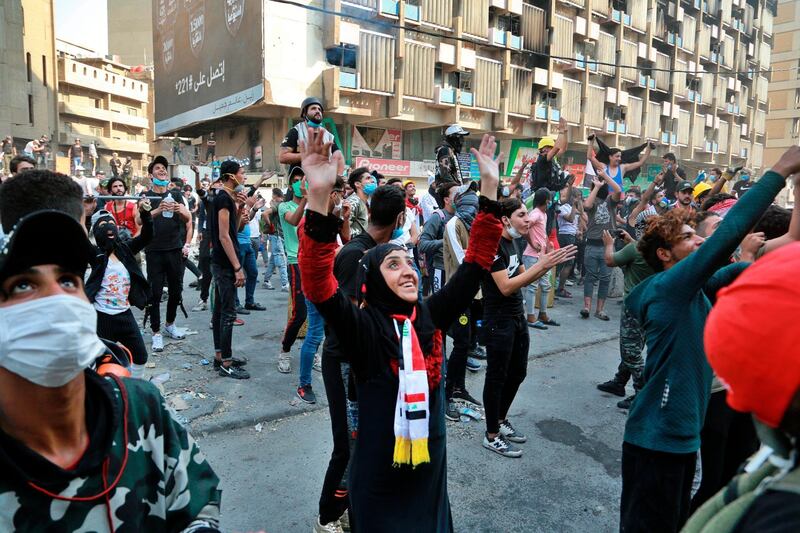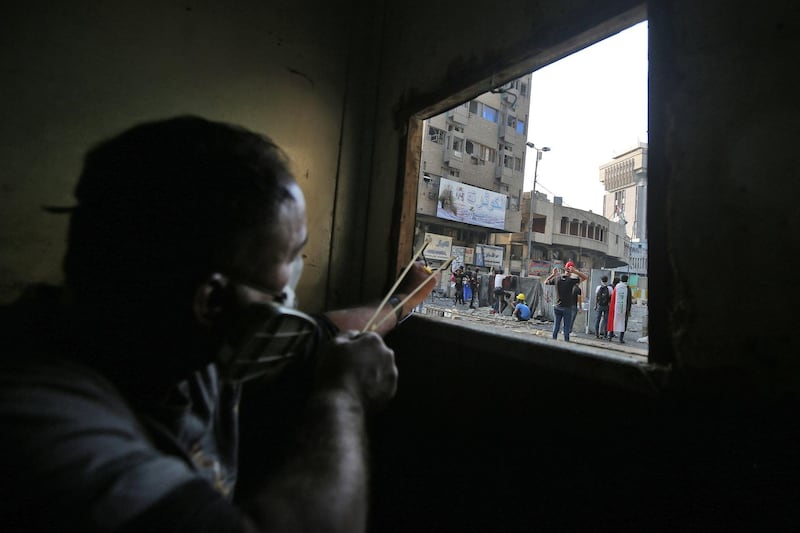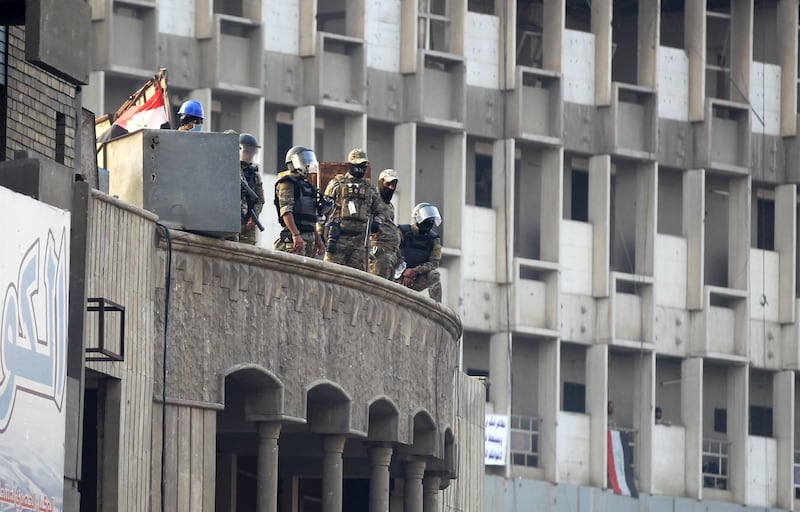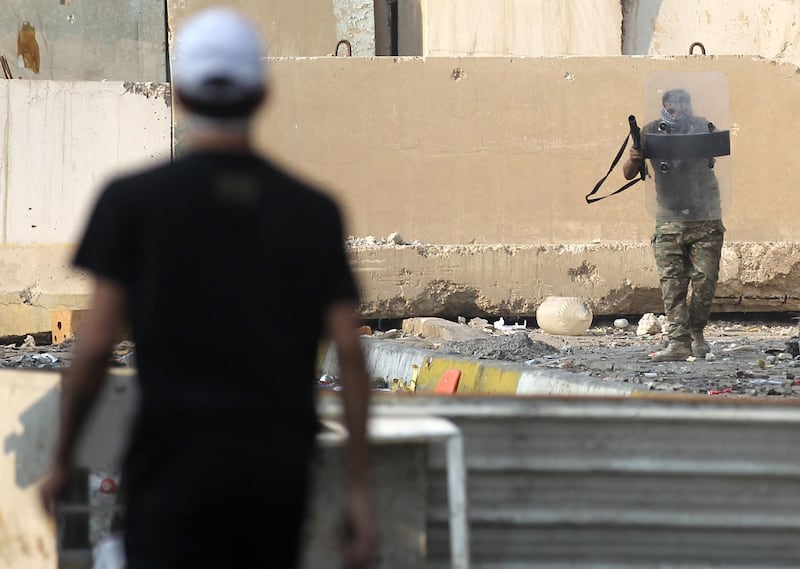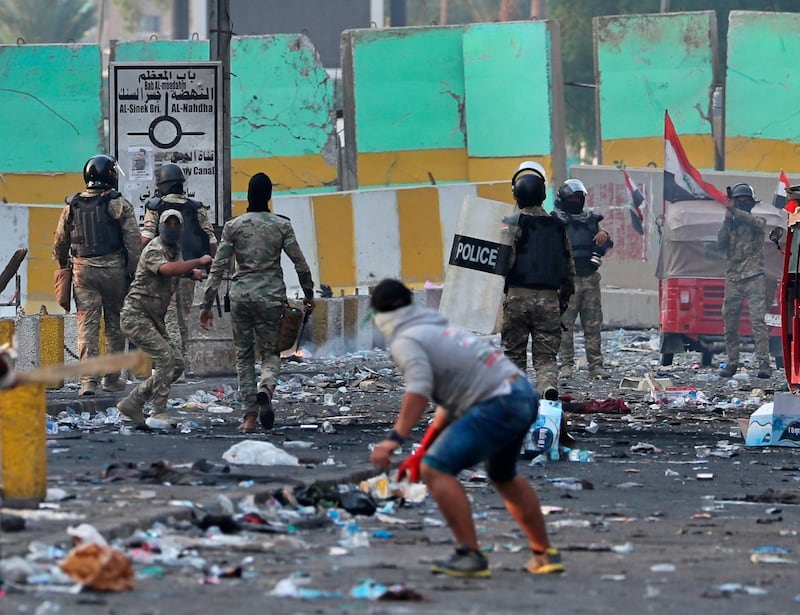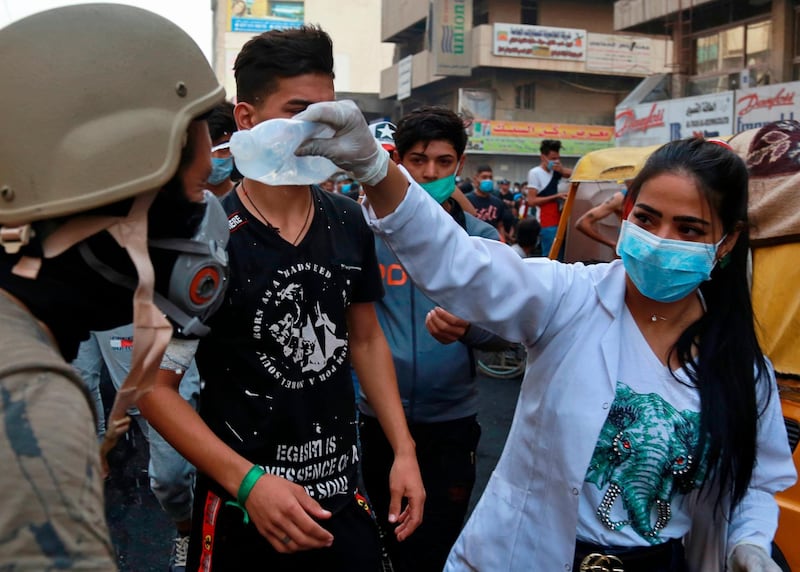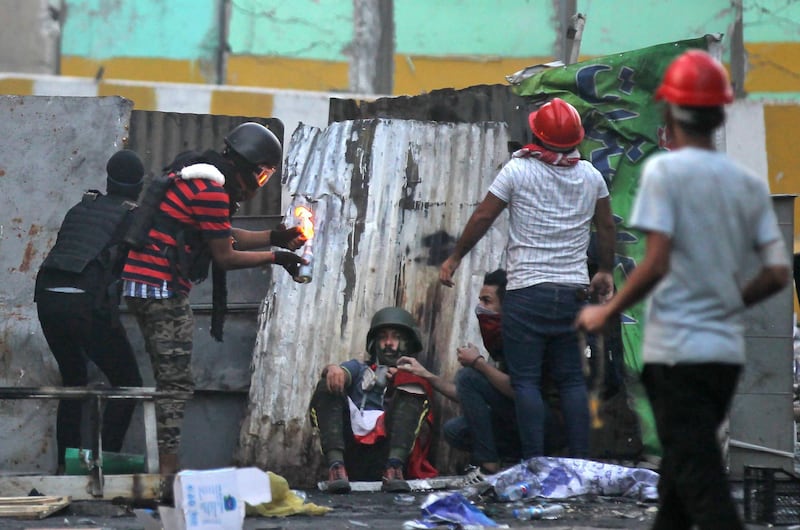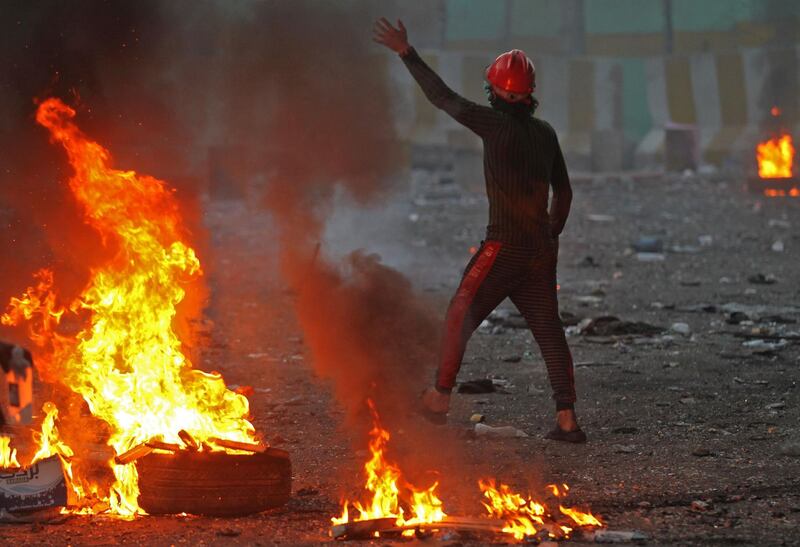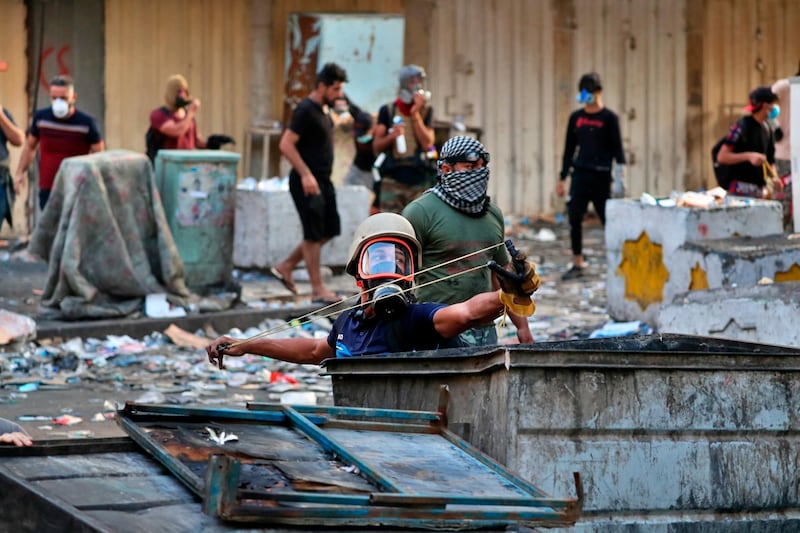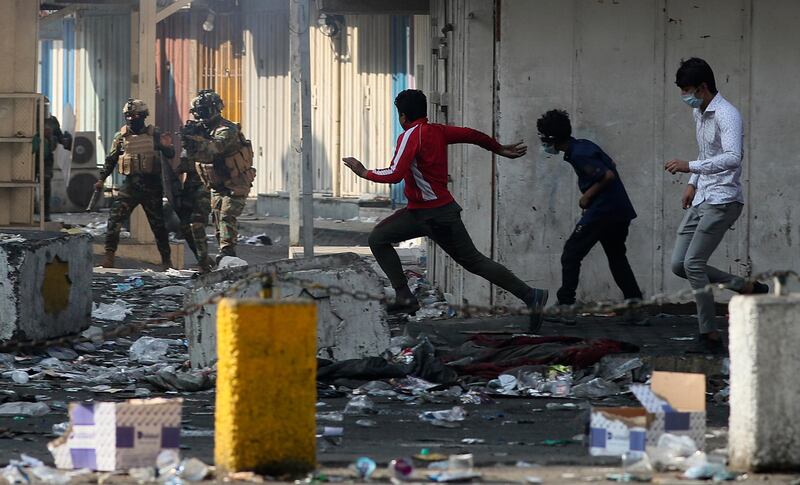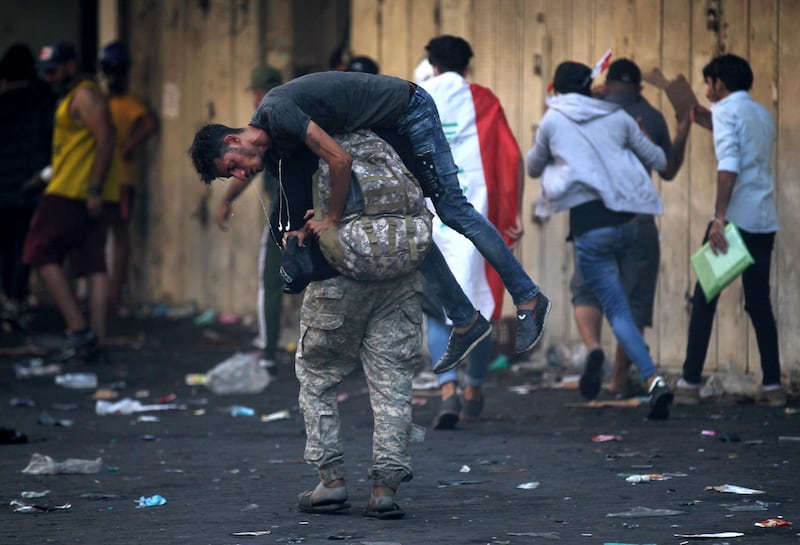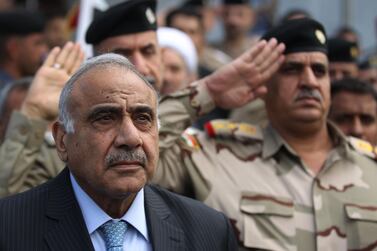Two Iraqi activists were released on Thursday after being kidnapped by "unknown forces" while supporting anti-government protests, although the fate of dozens of others is still not known.
Saba Al Mahdawi, a volunteer paramedic, went missing while returning home from protests in Baghdad's Tahrir Square on the night of November 2, while Ali Hashim, a journalist, was taken away from the square by unidentified gunmen on November 7.
Their release was confirmed to The National by Iraqi Member of Parliament Arshad Salihi and Suhaila Al Assam, an Iraqi rights activist. There was no immediate information about their health or who had been holding them.
"We are not sure who has conducted the kidnapping. If we knew then we would complain to the authorities," Mrs Al Assam told The National.
Mr Salihi said Ms Al Mahdawi and Mr Hashim were released early on Thursday morning.
The abductions highlight the role of shadowy forces in the government’s brutal crackdown on demonstrators. According to the Iraqi High Commission for Human Rights, at least 330 people have been killed and 15,000 injured since the protests began on October 1.
Protesters have accused pro-Iranian militias of targeting activists, journalists and doctors taking part in the protest movement.
Dozens of people have reportedly gone missing during the demonstrations, which began as protests against corruption, unemployment and lack of services. The protesters are now demanding the removal of the entire ruling elite and an end to Iranian influence in Iraq.
"I can say that at least 50 individuals, mostly male activists, were abducted in Baghdad by unknown forces since the start of the protests," said Mrs Al Assam, who is also a member of the Iraqi Women's League, told The National.
But Arshad Salihi, the head of parliament’s human rights committee, said the number of missing people was far lower.
"The number of people kidnapped does not exceed six, but despite the low figures, violations against protesters are still occurring in Tahrir Square and we are following this development with extra care," Mr Salihi told The National.
"Dangerous entities are conducting these heinous acts," he said.
Both Human Rights Watch and the UN mission in Iraq reported six abductions of protesters or volunteers providing assistance in the Baghdad demonstrations, which have centred around Tahrir Square. They say that "unknown elements in Baghdad" conducted the operations.
"We know of six cases of individuals who were abducted since protests began. All of the cases occurred in Baghdad and two of the individuals have since been released," Belkis Wille, Human Rights Watch's senior Iraq researcher, told The National.
Ms Wille said the organisation has heard of abductions in southern Iraq but had not been able to verify them “because families have been too scared to speak to us”.
The protests, which began peacefully, are now witnessing daily clashes between security forces and young Iraqis who grew up in the years after the brutal dictatorship of Saddam Hussein was ended by the 2003 US-led invasion.
"Iraqi authorities are systematically targeting anyone speaking out against the conduct of the security officers in the protests," Amnesty International’s Middle East Research Director, Lynn Maalouf, said.
Amnesty has documented cases "where non-state armed groups are taking part in creating a culture of fear by abducting female medics and activists," she said.
While the organisation does not have an overall number for disappearances, they say that a "pattern where activists are being targeted" is emerging.
Ms Al Mahdawi had been treating wounded protesters at Tahrir Square in the days before she was abducted. She also collected donations for medicines. Mr Hashim, who is also civil society activist, was detained previously while taking part in a similar wave of anti-government demonstrations in 2015.
"He was arrested and tortured for taking part in the 2015 protests and for posting pictures and videos on social media," Mrs Al Assam said.
Rania Al Saidi, a volunteer doctor who has been missing since November 9, is also is believed to have been abducted, she said.
Mary Mohammad, an activist who was helping demonstrators in Tahrir Square, went missing a day later, according to posts on social media.
Mrs Al Assam said a Swedish-Iraqi man who came from Stockholm to support the protests had been missing for the past five days.
“Many are being threatened for participating in the protests. They cannot silence the young generation; they are only demanding their basic rights,” she said. "They are scared of the voices of young people."
